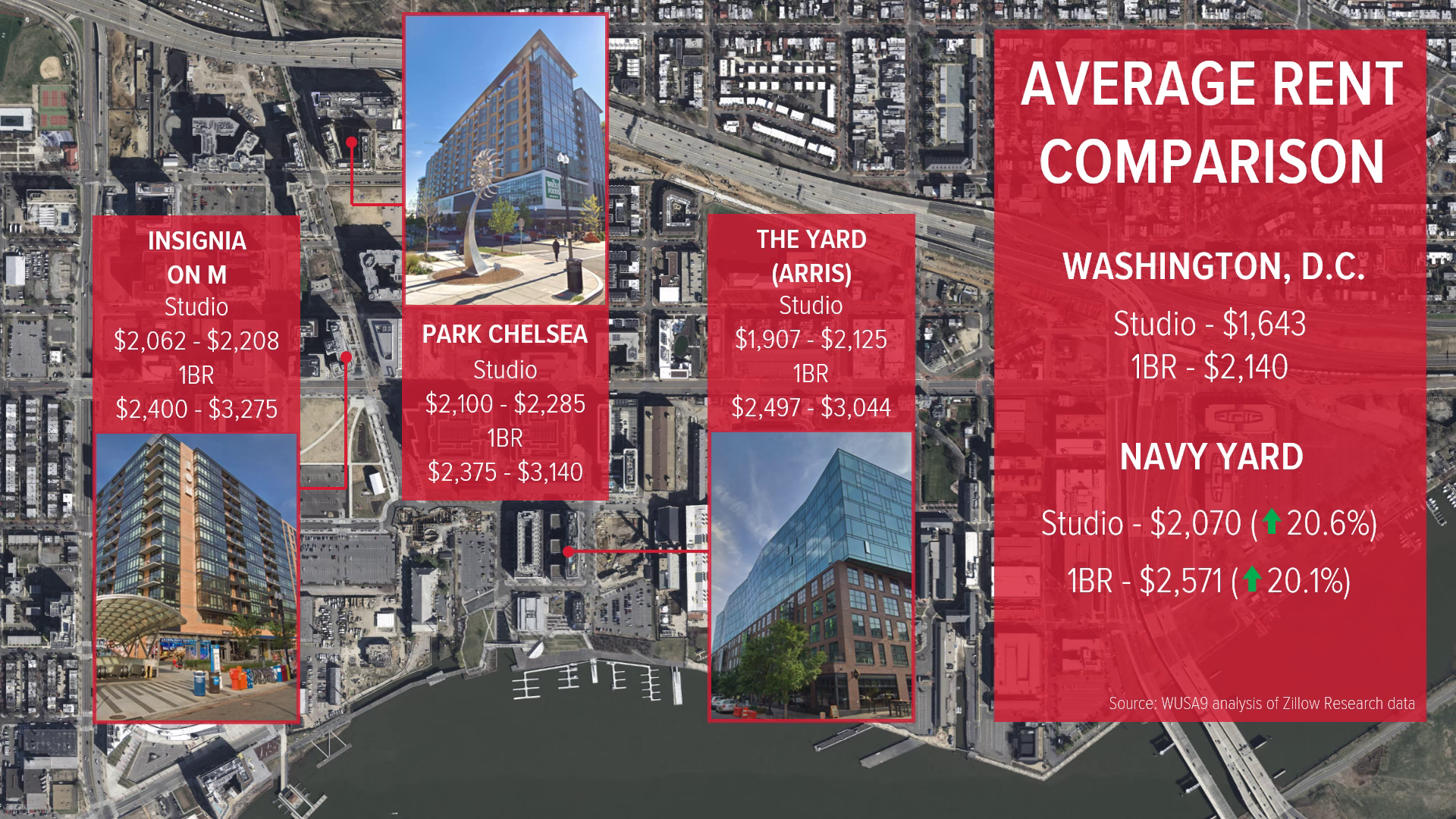WASHINGTON -- The growth of D.C.’s home values has slowed to its lowest level since early 2016 – mirroring a national trend across the country’s 50 largest metros.
According to July housing numbers published by the real estate firm Zillow, median home values grew 2.1 percent year-over-year, compared to 3.8 percent at this time in 2017.
The U.S. as a whole is seeing a similar trend, with home value growth falling nationwide for seven straight months to their lowest levels since October 2015.
D.C. has also seen 10 straight months of decline in its inventory of homes on the market, with roughly 2,000 fewer homes listed than in July 2017.
The combination of declining home value growths and declining inventory could potentially be a cause for alarm – particularly following this week’s inverted yield curve in the bond market, which is seen as an indicator of a possible upcoming recession.
But Zillow Director of Economic Research Skyler Olsen says he believes the housing trends over the past year are an indication that values are stabilizing following “a period of relatively extreme growth.”
“As talk builds of a potential recession in the next year or two, housing remains fairly stalwart,” said Zillow Director of Economic Research Skylar Olsen. “The slowing appreciation is ultimately a good sign that the market is adjusting in response to the growing unaffordability of down payments, while low mortgage rates are keeping those with the required savings interested despite softer growth out the gate. The uptick in the rate of homes coming onto the market – a good and true increase in supply – should be a boon to those inventory-starved home buyers still searching near the close of home shopping season.”
Olsen also noted that while house prices are cooling, median rents are continuing their upward trajectory.
In fact, a WUSA9 analysis of Zilllow Research data earlier this month found that parts of D.C. have seen double-digit increases in median rent over the past year – more than three times the city average for apartments.
Those increases are largely being driven by a surge in new luxury apartment units entering the market in Southwest.
----
Jordan Fischer is a data reporter with WUSA9. Follow him on Twitter at @JordanOnRecord.

